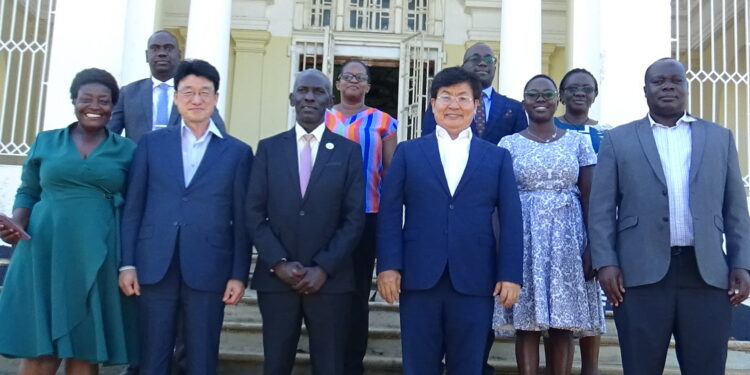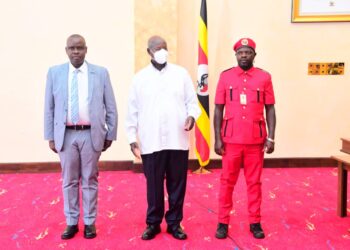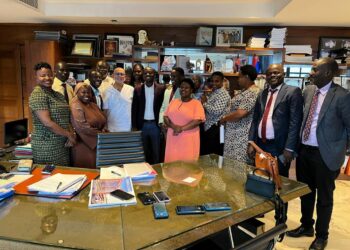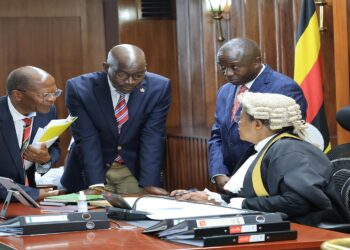Entebbe, March 28, 2024 —The South Korean Agency for International Agricultural Development has reaffirmed its commitment to supporting Ugandan farmers in transitioning from subsistence to modern farming practices. This assurance was conveyed by Dr. Cho Ilho, the new Director of the Korea Partnership for Innovation of Agriculture (KOPIA) Uganda, during a meeting with Dr. Yona Baguma, the Director General of the National Agricultural Research Organisation (NARO), held at the NARO headquarters in Entebbe on Wednesday.
Dr. Cho succeeds Dr. Park Taeson, whose tour of duty runs out after five years in Uganda. Over the years, KOPIA has provided significant support to NARO, particularly in enhancing various agricultural programs aimed at improving the livelihoods of smallholder farmers. Over UGX 7.5 billion has been invested in the production of potato seeds, citrus, rice, and local chicken utilizing advanced agricultural technologies developed by NARO and Korean scientists.
In particular, farmers have received support in citrus production management and market development through model villages in the Teso region. Initiatives such as the distribution of NAROPOT 1, a high-yielding NARO potato variety, and improved local chicken breeds have been implemented to boost household incomes.
Efforts have also been directed towards rice production interventions at the Doho rice scheme for seed multiplication, leading to a significant increase in aromatic rice production in Uganda. Farmers have been equipped with agronomic skills, resulting in a rise in yields from an average of 3.1 to 4.1 tons per hectare. NARORICE-1, renowned for its aroma, high yield, and early maturity, has become highly sought after, commanding a better price and significantly contributing to increased productivity and farmers’ incomes.
Dr. Baguma commended KOPIA for its infrastructure development projects at NARO Zonal Agricultural Research Institutes in Mukono, Kawanda, Namulonge, and Luweero. He commended KOPIA’s collaborative planning approach, ensuring that implemented programs are tailored to meet the needs of farmers.
He noted that South Korea’s transition of its farmers from subsistence to modern agriculture was an experience Uganda was ready tap into in the quest to get farmers out of poverty.
Highlighting the necessity of establishing a farmer’s skilling center, Dr. Baguma pledged to allocate space for its construction at one of the Zonal Agricultural Research Institutes. Currently, NARO oversees sixteen Public Agricultural Research Institutes, including seven National Agricultural Research Institutes (NARIs) conducting research of national strategic importance, and nine Zonal Agricultural Research and Development Institutes (ZARDIs) conducting adaptive research across Uganda’s nine agro-ecological zones.
Do you have a story in your community or an opinion to share with us: Email us at editorial@watchdoguganda.com













